 What is your life’s purpose?
What is your life’s purpose?
My life’s purpose is to help the underdog, particularly animals who need a second chance at a happy ending.
How are you living your purpose?
In 2013 I started a consulting business, Making Good Work, LLC. I provide organizations working to advance the greater good with the tools needed to maximize their effectiveness, achieve their mission, and make their vision a reality. I help good causes achieve great results. Most of my clients are working to help animals and promote the human-animal bond.
For example, The Grey Muzzle Organization, for which I serve as a part-time executive director, is working to achieve their vision of a world where no old dog dies alone and afraid. Being able to help homeless senior dogs and raise awareness of all the love they have to give is incredibly rewarding. I have been privileged to work with organizations around the world on topics ranging from the emotional well-being of cats to animal abuse prevention to shelter dogs and at-risk youth.
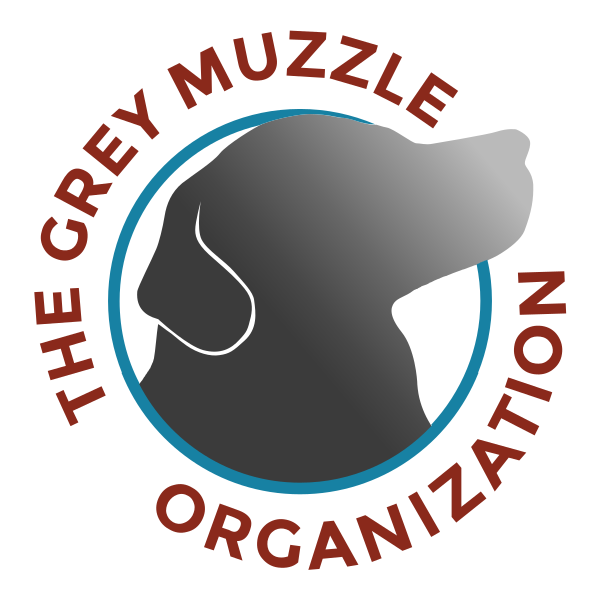
How did you find your purpose?
Quite simply, I showed up.
In July 2008, I turned on the local news—something I rarely do—and saw a story about a dog named Jeddah who was lost in Northern Virginia. Jeddah’s human dad was in the military and he and Jeddah were headed overseas for a tour of duty. As Jeddah’s crate was being loaded onto the plane at Dulles Airport, the unthinkable for any dog parent happened—she got out of the crate and ran. A week later, there was John on the local news tearfully sharing his week-long search for missing Jeddah. My heart broke as his voice cracked and he begged viewers to show up the next day to help hang flyers and search for the dog he loved.
For a few seconds, I thought of all the reasons why driving over an hour from my home in Maryland to Northern Virginia to spend Saturday outside in 110-degree heat and humidity looking for somebody else’s lost dog was a really bad idea. Then I imagined what I would be feeling if one of my three dogs were lost. And I cried.
I showed up the next day not really knowing what to expect but hoping I could at least help in some small way. The experience changed both my life and my career. For the next three months we searched for Jeddah, and I rode the roller coaster of emotions that comes with trying to find a lost dog. Sadly, we never found Jeddah, but the group who searched for her—myself included—went on to help search for more lost dogs, most with happier endings (who knew there were so many lost dogs in DC?). For months, by day I was doing my “real job” evaluating federal programs for at-risk children, and the rest of the time I was hanging lost dog flyers and canvassing neighborhoods where the latest sighting had been reported.
Along the way, I met Laura and her search-and-rescue dog Chewy who was called in to follow the scent of the lost dogs whenever there was a potential sighting. They opened my eyes to an amazing world of jobs and programs that actually included animals—animal assisted therapy, search and rescue, dog-training programs for at-risk youth. The list seemed endless. I was fascinated—and hooked.
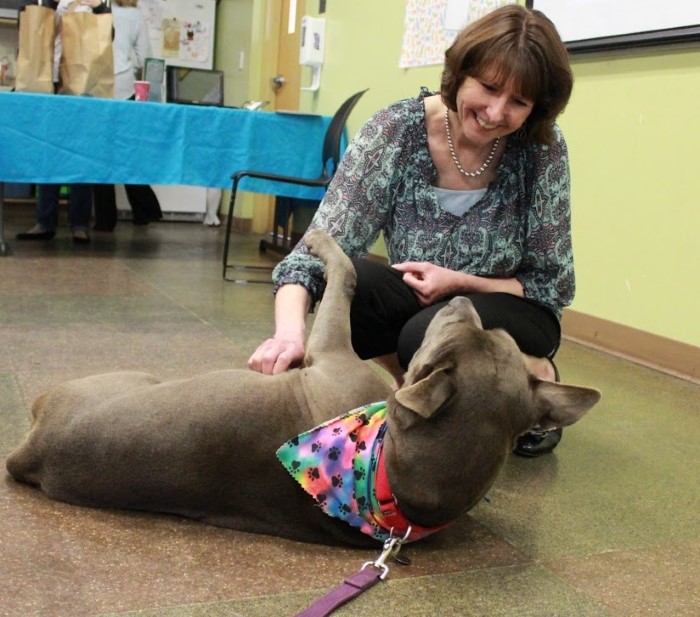
Teaching a seminar about animal abuse prevention
After a Ph.D. and more than 15 years of work in the research world, I figured I must have at least a few skills that could be relevant to this new-to-me world of animal programs. My Google searches turned up one fascinating program after the other. With more moxie than I ever knew I had, I emailed each organization’s Executive Director with a message that went something like this: “I’m an animal lover who also happens to be a researcher. I know how to write successful grant proposals, develop programs, and do evaluation. Would you like to collaborate? Oh, and by the way, I’ll do everything for free.” For the next two years, I spent nights and weekends doing pro bono work for animal-related nonprofits—from California to Chicago to Tanzania.
Then in 2012, the downturn in the economy finally caught up with my “real” job and I found my paid hours drastically reduced. I remember thinking, “Wow, here’s a choice. I can either find another 9 to 5 job and do what I have been doing my whole career or I can take a leap and try to make a living from following my passion for the human-animal bond.” Honestly, it wasn’t much of a choice. A month later, I founded Making Good Work, LLC, and a few months after that I got my first paying client. I’d be less than truthful if I said I wasn’t scared. But it didn’t stop me. Finding your purpose makes you fearless.
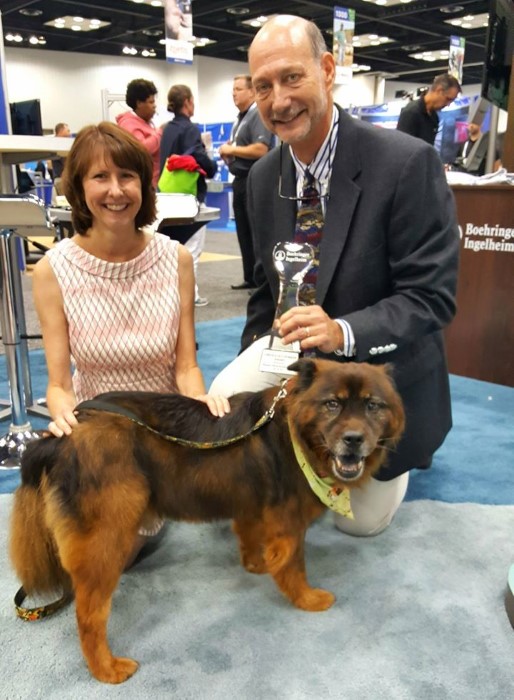
Celebrating old dogs at the 2017 American Veterinary Medical Association conference
What advice do you have for purpose seekers?
Show up. Don’t be afraid to try new things—even if they seem too hard or too scary or like too much trouble. Trust that an incredible string of cosmic coincidences will help you find your purpose. Be open to those coincidences and don’t be afraid to take a risk. Don’t worry if people call you crazy (they probably will). And above all, don’t give up.
What resources do you recommend?
Learn how to help old dogs at The Grey Muzzle Organization.
Learn about coursework related to the human-animal bond at Animals and Society Institute.
Safe Humane Chicago is working to make communities safer and more humane by inspiring positive relationships between people and animals.
Forget Me Not Farm is one of the first nonprofits I worked with on my journey. They offer amazing programs for at-risk children.
My Old Dog: Rescued Pets with Remarkable Second Acts by Laura Coffey and Lori Fusaro is an uplifting collection of stories about old dogs who got a second chance.
Connect with Lisa Lunghofer
Email: llunghofer@makinggoodwork.org
Website
LinkedIn
Facebook Page
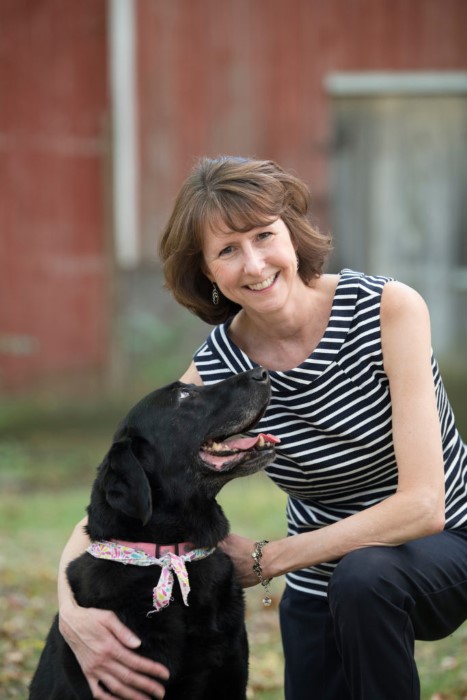 Lisa Lunghofer, Ph.D., is Executive Director of Making Good Work, LLC, and has more than 20 years of experience working with public sector and nonprofit clients, helping them to create strategic plans, write grant proposals, build successful programs, develop evaluation plans, and track outcomes. She has worked extensively in the areas of animal welfare, the human-animal bond, violence prevention, and child and family well-being.
Lisa Lunghofer, Ph.D., is Executive Director of Making Good Work, LLC, and has more than 20 years of experience working with public sector and nonprofit clients, helping them to create strategic plans, write grant proposals, build successful programs, develop evaluation plans, and track outcomes. She has worked extensively in the areas of animal welfare, the human-animal bond, violence prevention, and child and family well-being.
Since 2009, Lisa has served as a consultant to animal-related programs throughout the country. Examples of her work include developing communication tools (e.g., elevator speeches, appeal letters) to support fundraising efforts; designing an innovative education initiative, based on a public health model, to prevent animal cruelty in Philadelphia; evaluating programs that pair shelter dogs with veterans diagnosed with PTSD; writing grant proposals for programs that promote the human-animal bond; and directing the Animals and Society Institute’s animal abuse prevention program. Lisa currently serves as the part-time Executive Director of The Grey Muzzle Organization, which provides resources and grants to support development of programs for senior dogs.
Lisa’s commitment to giving back inspired her to create the Pay it Forward program. Every quarter she selects an organization for which she provides pro bono services. In order to be considered, organizations submit applications providing an overview of the project with which they need help. All she asks in return is that the organization pays it forward, agreeing to provide a specific service at no cost to another organization in need.

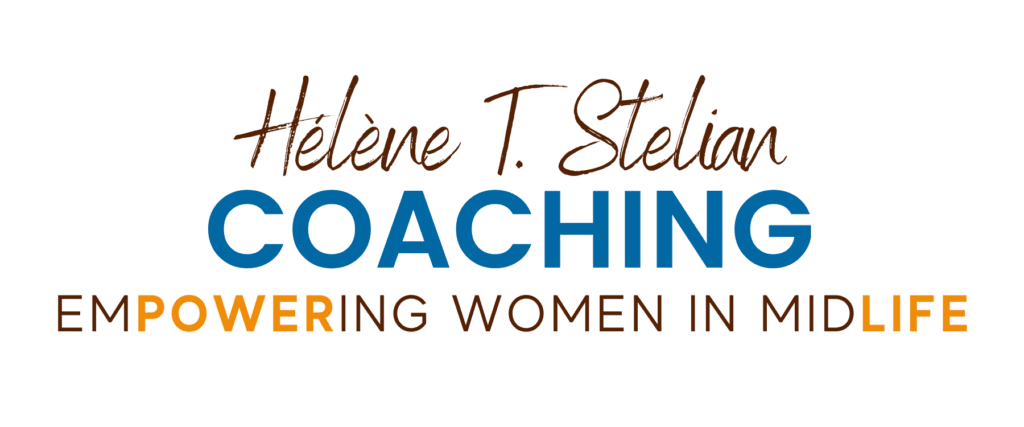





0 Comments